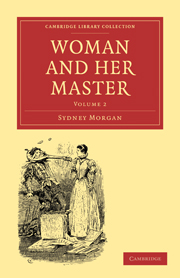Summary
In the primitive state of Roman society, when women, considered as slaves, were treated as children, when men took wives without love, and lived with them without respect, the intellectual capacity of the sex was rarely felt, and never acknowledged: the idea of female agency operating upon public affairs, could not have suggested itself under a government founded on the law of the strongest. But, as civilization advanced, and mind began to make way against brute force, the moral resources of the women were gradually brought into action.
The occasional intervention of the sex, once admitted as an expedient, it was progressively adopted into the system of the republic, though without place and unrecognized. While censors condemned, and satirists ridiculed, the women acquired weight in public estimation; their complaints of wrongs long endured commanded attention; rights long withheld were gradually conceded to them; and they would have ultimately attained to the full exercise of those intellectual and moral qualities with which nature had endowed them, if Rome herself had not submitted to influences, which, in all times and regions where they have subsisted, have checked the march of civilization, and thrown back society upon the point from which it first started. Society in its foulest corruption, as in its original ignorance, has no political existence, but in a slavish submission to irresponsible power.
- Type
- Chapter
- Information
- Woman and her Master , pp. 60 - 78Publisher: Cambridge University PressPrint publication year: 2010First published in: 1840

